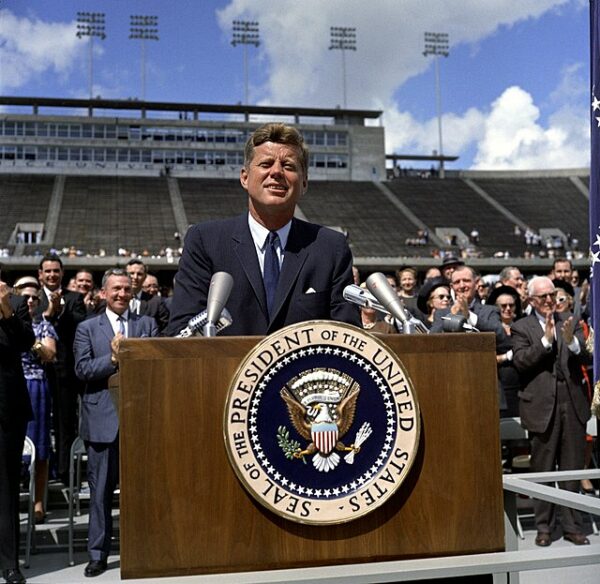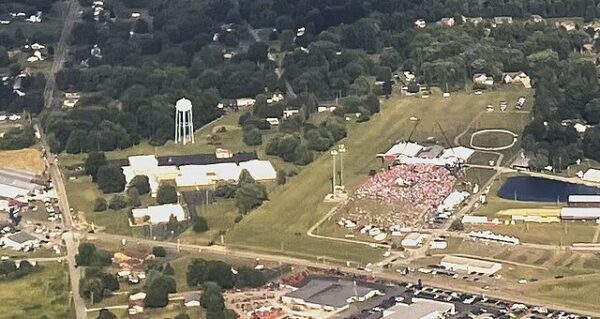On September 12, 1962, President John F. Kennedy set the course for American explanation in a way that had never been done before. His iconic “We Choose to Go to the Moon” speech at Rice University on set the stage for the 21st century and proved to be a pivotal moment in the space race. It still remains one of the most inspiring speeches in American history.
In his speech, Kennedy outlined the ambitious goal of sending American astronauts to the moon and returning them safely to Earth before the end of the decade, a goal that would eventually culminate in the Apollo 11 mission.
Kennedy’s speech was a powerful call to action, rallying the American people around the idea of exploring the unknown and achieving the seemingly impossible. He spoke of the importance of space exploration not only as a scientific endeavor but also as a symbol of American ingenuity and determination. By choosing to go to the moon, Kennedy believed that the United States could demonstrate its technological and intellectual prowess on a global stage.
One of the most memorable aspects of Kennedy’s speech was his eloquent articulation of the challenges and risks involved in the moon mission. He acknowledged that it would be difficult, costly, and fraught with dangers, but he emphasized that these challenges were worth undertaking in the pursuit of knowledge and the betterment of humanity. Kennedy’s words resonated with the American public, inspiring a generation of scientists, engineers, and dreamers to work towards the goal of reaching the moon.
The Houston Space Center explained that “The space race had become heated between the Soviets and the United States. Just six weeks prior to the speech, Yuri Gagarin, a Soviet cosmonaut, became the first person in space. The pressure was on America to send astronauts into the final frontier.
John Logsdon, professor emeritus at George Washington University, explained Kennedy’s reasoning behind the speech while giving a talk at Space Center Houston. Logsdon pointed out that the speech wasn’t just to rally and inspire the nation to reach for the Moon. It was to explain to the American people why the Apollo program needed to be a high priority, which would allow for a ‘boost’ in funds.
Kennedy succeeded. The Rice University speech wasn’t the first time Kennedy had called to reach the Moon within a decade. He had made the challenge in a speech earlier in the year to Congress. However, the Rice University speech was the one that galvanized public support, which led to government investment.
The U.S. government committed approximately $25 billion to the program, equivalent to over $100 billion today. NASA funding comprised 4.4% of the national budget in 1966. This amount of federal support further illustrates America’s dedication to taking the lead in the coveted space race.
No one knew if astronauts would make it to the Moon and walk on the surface. One thing was for sure: If it was possible, America wanted to be the first country to do it.”
After all, “why does Rice play Texas? Not because it is easy, but because it is hard.”
Kennedy’s speech had a profound impact on the direction of NASA and the space program. It provided the necessary political and public support to allocate the resources needed to achieve this audacious goal. The moon landing in 1969, just seven years after Kennedy’s speech, stands as a testament to the power of visionary leadership and the indomitable spirit of human exploration. It was a moment that united the nation and left an enduring legacy in the history of space exploration.






